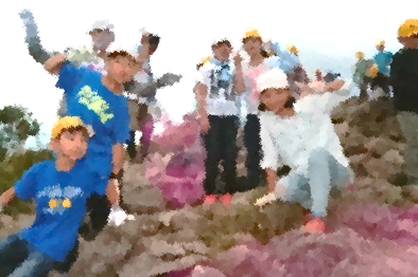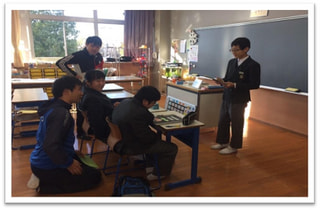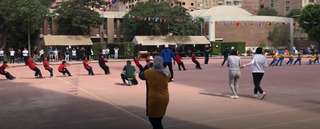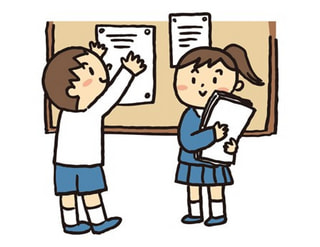Other languages : Arabic
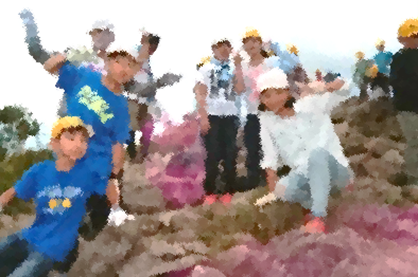
Mountain climbing in cooperation with friends
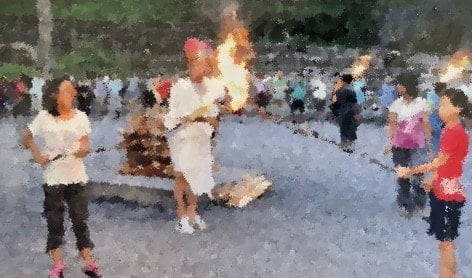
Recreation in campfire
Primary schools in Japan provide time for nature experience activities with overnight stays. This case study introduces a forest school as part of nature experience activities. The students are seen cooperating with their friends, working independently to achieve their own goals, and deepening their friendship with their classmates and same grade students.



Target grades:
Activity Category:
Time:
5th grade, Primary school
- Classroom activities (45 minutes)* Preliminary activity
- Forest School (1 night and 2 days)
- Classroom activity (45 minutes) * Post-event activity
![]()
Aims
- To nurture a spirit of familiarity with nature, through outdoor activities.
- To cultivate social and moral skills through communal living and group activities.
- To discover new aspects of their friends and deepen their friendships, through cooperative activities with friends.
![]()
Prepared teaching materials, necessary equipment, etc.
- Worksheet: Forest School Reflection Cards (* Mainly used for pre-school activities and post-school activities)
![]()
Implementation Procedure
① Preliminary activities (preparation for forest school)
The students prepared for the forest school. In doing so, they made the following efforts to ensure that all the students were active and positive.
(1) Each group discussed and decided on the roles (“Kakari*”) of all members of the group. In doing so, they took into consideration the good qualities and uniqueness of each student.
(2) Each student decided on a personal goal in carrying out his/her role (“Kakari”).
<Examples of roles (Kakari) of students and its objectives.
Group leader's Kakari: “Be aware of the 5-minute advance action”.
Meal Kakari: “Prepares meals more willingly than anyone else”.
Beautician Kakari: “Try to keep the room tidy and spend time in an orderly manner”.
*The "Kakari" in this example refers to role assignments that take place only during forest school activities, and differs from "Kakari" that typically take place in the classroom.
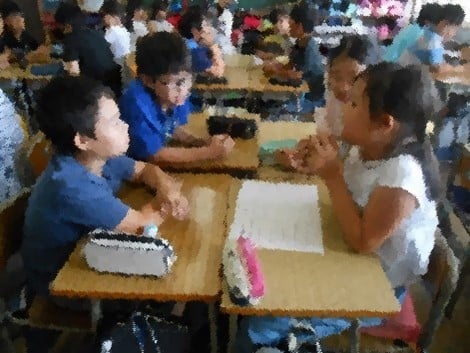
② Forest school (mountain climbing)
During the forest school, a variety of activities were conducted.
The first activity was mountain climbing. The students climbed the mountain while talking and encouraging each other with their friends in the group.

③ Forest school (cleaning)
The second activity was cleaning. The rooms they used were organized by themselves.
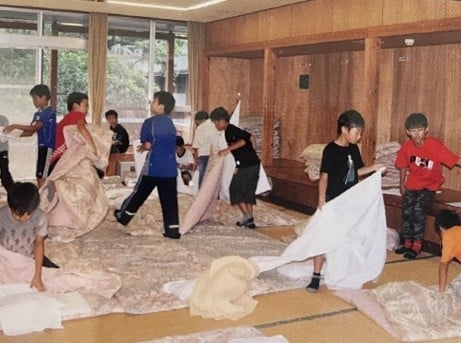
④ Forest school (meal preparation and clean-up)
The third activity was meal preparation and clean-up. Led by the students in charge of meals, they served rice and miso soup, and cleaned up by themselves.
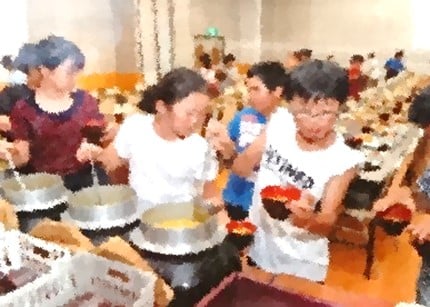
⑤ Forest School (campfire)
The fourth activity was a campfire. At the campfire, the students had a good time with recreational activities planned in advance, by the committee members*.
*A special committee for the forest school consisting of several representatives from each class.

⑥ Post-Activities (Reflection on Activities)
After the forest school, the students reviewed the activities. Theys made self-evaluations based on the individual goals they set in "1) Preliminary activities" and the contents of the "Forest School Reflection Card". The following ideas were devised so that they could connect the contents of their reflections to the next event and their future school life.
(1) The cards included the items "What skills did you acquire through this event? and "How will you apply the skills you acquired this time?
(2) The cards were filed for each student so that they could look back on their own growth at any time.
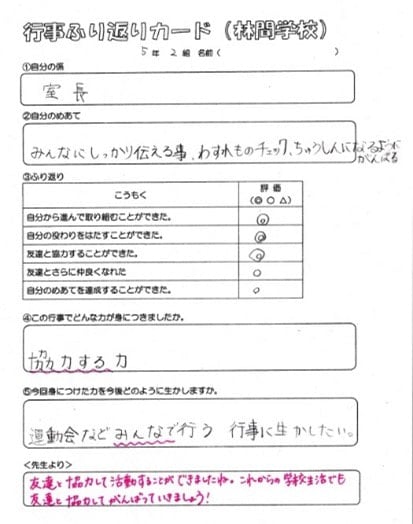
⑦ Post-event activities (assembly)
Afterwards, a "Forest School Fun Assembly" was held. The students exchanged "what their friends did well" and "good points" they found through the forest school by writing them on the "Prize Card." Through the activity of sharing each other's "hard work" and "good points," they increased their self-esteem and strengthened their bonds with their friends.
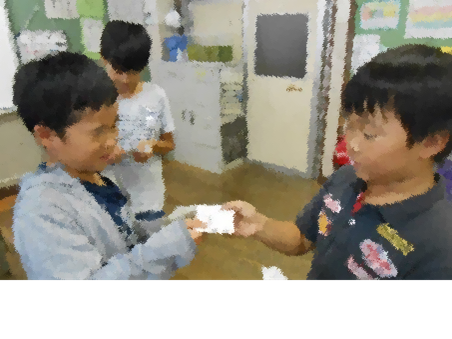
![]()
From the author
- It is important for students to understand the purpose and significance of forest school in advance.
- It is also important to incorporate a wealth of activities that cannot be experienced in everyday school life.
- Since the program involves an overnight stay, it is important to pay close attention to the health of the students and to work closely with their parents.

![]()
Reference
![]()
Explanation of Terms
◎Nature Experience Activities: These activities are designed to "promote nature experience activities inside and outside of school and foster a spirit of respect for life and nature as well as an attitude that contributes to environmental conservation. Nature experience activities include forest school and seaside school.
◎Forest school: Activities held mainly in the summer in mountains and highlands where the weather is pleasant.
◎Seaside School: Activities held mainly in the summer in coastal areas.
Related article
Previous
【Japan - Saitama Prefecture】: All-School Walking Excursion: "Wonderful Discovery“, ”Full of Warm Words“, ”Full of Thank You!“
Next
Students’ School Committees (Primary School)

